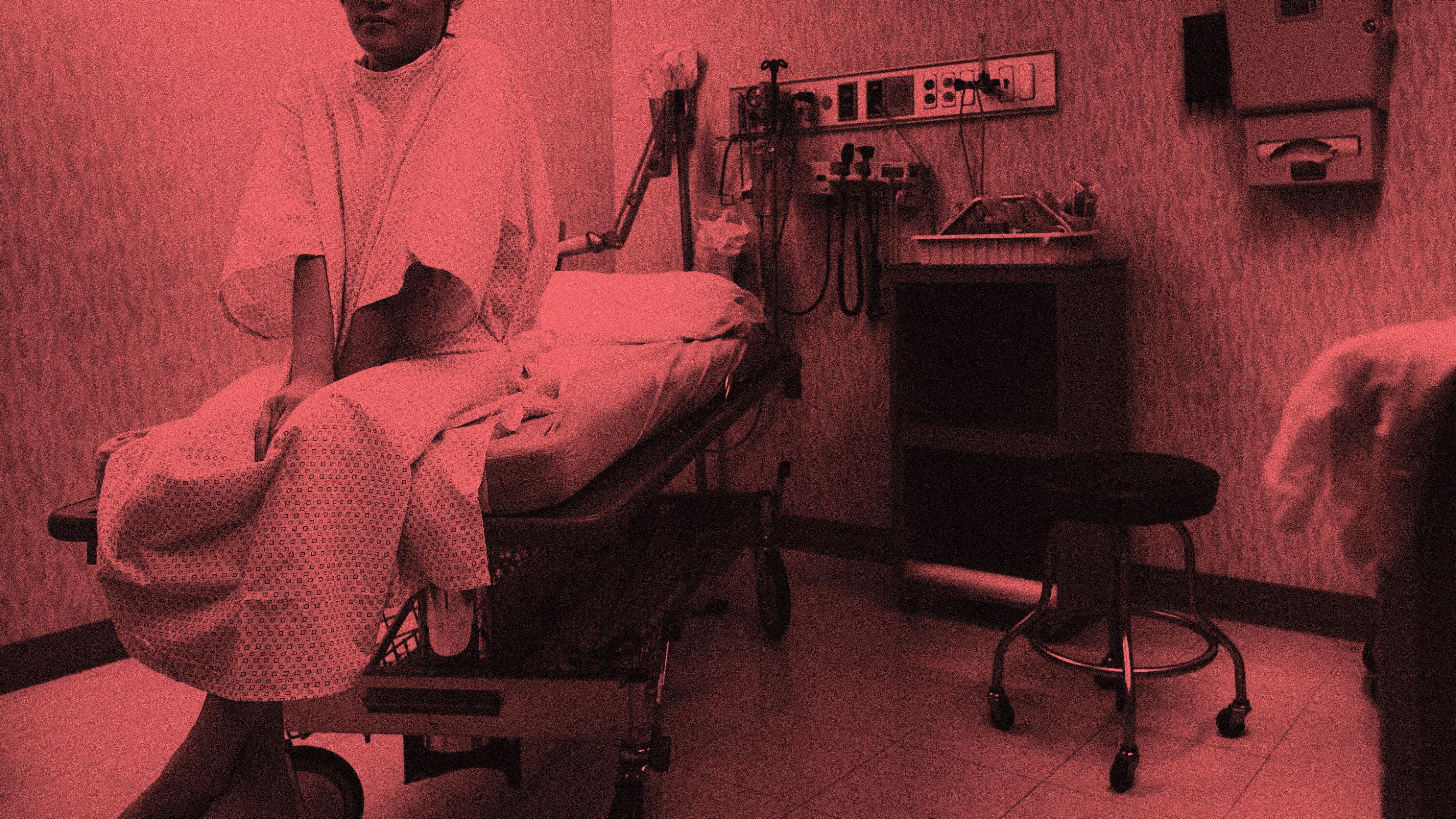Last week, Joe Nelson, a physician who provides abortions in Texas, felt a tickle in his throat. Then he started coughing. His temperature soared. On Monday, at his doctor’s office, he tested negative for the flu. Unable to obtain a coronavirus test there, he is now self-quarantining for 14 days.
In a phone call with HuffPost as he left the doctor’s office, Nelson said he was mostly worried about how his unplanned absence might affect women’s ability to get abortions in the state.
“Potentially, it could have a huge impact,” he said. “There are not that many doctors who provide abortion care in Texas. A lot of the doctors that do come in from out of state. In a situation where doctors are less likely to want to travel, if there’s no one to cover me, patients will have to wait.”
Reproductive rights groups warn that the spread of coronavirus could cripple abortion services, especially in places where access is already tenuous. Six states have only one remaining clinic apiece. In many rural areas, clinics are staffed by travel doctors who fly to multiple locations to see patients. Nelson, for example, provides abortions at three clinics across the state of Texas.
According to a Guttmacher Institute analysis released earlier this month, the outbreak may result in “a shortage of clinicians who can provide sexual and reproductive health services,” as well as increased wait times for patients in need. In places with a limited number of providers, this will put “an extreme strain” on the capacity to serve patients.
“If a provider gets sick, that’s one fewer person to provide care,” said the Very Rev. Katherine Hancock Ragsdale, president of the National Abortion Federation. “One or two people unable to show up can make the difference between a clinic being able to function or not.”
Clinics across the country are preparing for the worst and taking extra steps to protect their clients from coronavirus exposure. Clinic staff are asking women to do as much paperwork as possible online and over the phone to reduce the time they spend in the office. Some clinics have adjusted their patient schedules and are spacing appointments further apart so there is less overlap.
Ragsdale is concerned about how physicians will get to their clinics as travel becomes more fraught. The same goes for patients, she said, who may not want to take public transportation at this time. Patients may also struggle to come up with the money for an abortion if they are out of work due to the coronavirus, and school closures may make it harder for them to secure reliable child care.
Another big concern, Ragsdale said, is a possible shortage of medical supplies like gloves and masks.
“We worry that all health care resources are being channeled to non-elective procedures, and abortion tends to be classified as an elective procedure,” Ragsdale said. “We understand that abortion isn’t a stroke or a heart attack, and it can be scheduled out. But it can’t be scheduled out indefinitely.”
Denying or deferring an abortion puts an immense burden on patients and their families, she said. They need timely access to abortions ― even in the midst of a pandemic.
Ghazaleh Moayedi, an abortion provider and board member with Physicians for Reproductive Health, noted that TRAP laws, which stands for “targeted regulation of abortion providers,” are actually making patients less safe during the coronavirus outbreak.
In Texas, patients are forced to make multiple trips to the clinic for unnecessary counseling and ultrasounds, she said. Every visit creates another opportunity for the virus to spread.
Medication abortion, where a patient takes pills at home to end a pregnancy, can be safely and effectively administered by telemedicine, Moayedi explained. But in Texas, patients seeking a medication abortion are required to make three in-person trips to a clinic.
“This is a time period where we should be focusing on moving all health care to telemedicine, minimizing the number of patient contacts within a clinic,” she said. “We could be moving all our patients in the first trimester to telemedicine for medication abortion so they don’t have to come in at all.”
Texas Gov. Greg Abbott (R) has asked state agencies to take any action necessary to facilitate telemedicine during the pandemic ― but abortion services are excluded, Moayedi said. That means her patients, some of whom come from hundreds of miles away, must see her in person just to get a pill.
“This is going against our best medical judgment and advice,” she said.
To see this article and others from HuffPost, click read more.
Source: Abortion Access Is Under Threat As Coronavirus Spreads | HuffPost
 Listen Online
Listen Online Watch Online
Watch Online Find a Station in Your Area
Find a Station in Your Area







 Listen Now
Listen Now Watch Online
Watch Online
